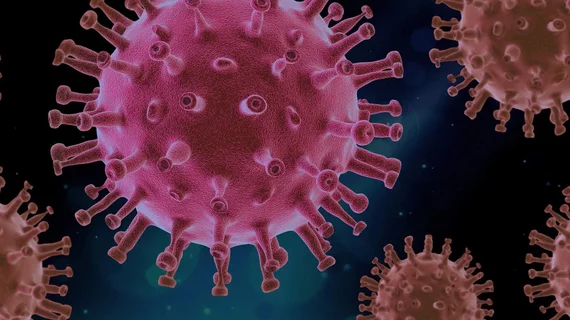Patients infected with COVID-19 suffer from long-term heart and lung damage, but for many, their condition improves with time, according to new research presented Monday.
Experts from a pandemic hotspot in Austria reported on the first 86 individuals enrolled in an ongoing study, highlighting their symptoms, lab test results, oxygen levels, and CT scan and echocardiogram findings, among other metrics.
During patients’ initial visits, nearly 90% showed lung damage on their CTs, with more than half suffering breathing issues. But according to 12-week follow-up findings—presented Monday at the virtual European Respiratory Society International Congress—less than 60% of subsequent scans still revealed lung damage, with symptoms also improving.
"The bad news is that people show lung impairment from COVID-19 weeks after discharge; the good news is that the impairment tends to ameliorate over time, which suggests the lungs have a mechanism for repairing themselves," co-investigator Sabina Sahanic, a clinical PhD student at the University Clinic of Internal Medicine in Innsbruck, Austria, said in a statement.
Research continues to mount suggesting that COVID-19 may have lasting cardiovascular and even neurological impacts long after recovery. For the current study, Sahanic et al. included 86 patients with an average age of 61 enrolled between April 29 and June 9. Half were current or former smokers, while 21% were admitted to intensive care—19% received mechanical ventilation.
CT scan scores indicating lung damage severity dropped from eight points during the initial six-week follow-up to four points at week 12, the authors reported. Inflammation and fluid buildup stemming from the virus, known as ground glass, also improved from 88% of patients at the onset to 56% at 12 weeks.
What’s more, echocardiograms showed that 58.5% of participants had left ventricle heart disfunction at their six-week appointment. While Sahanic et al. said this diastolic abnormality is specific to COVID, the condition did improve with time.
The group also noted that breathlessness, lung function and coughing numbers all improved by the 12-week follow-up mark.
“The findings from this study show the importance of implementing structured follow-up care for patients with severe COVID-19 infection,” Sahanic added Sept. 6. “Importantly, CT unveiled lung damage in this patient group that was not identified by lung function tests. Knowing how patients have been affected long-term by the coronavirus might enable symptoms and lung damage to be treated much earlier and might have a significant impact on further medical recommendations and advice."

